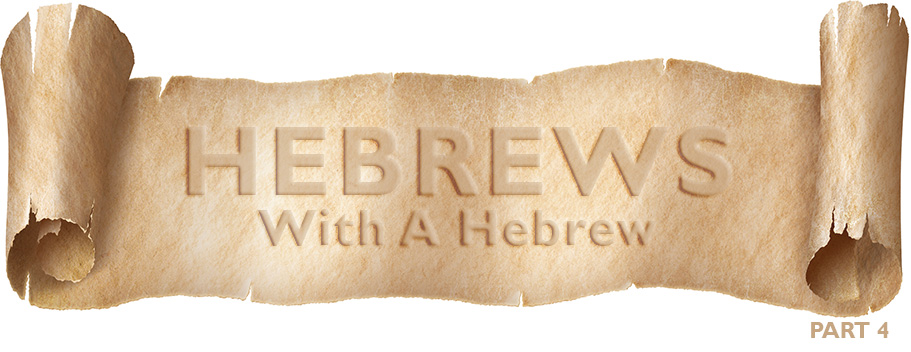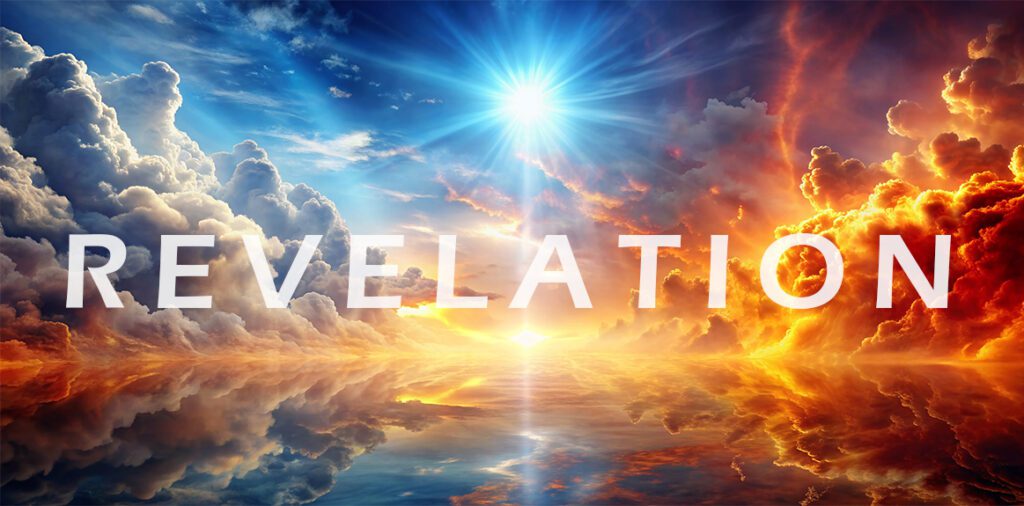Today we will examine the remaining four glorious truths about our wonderful Lord. In the previous blog, we looked at the first three in-depth statements with which the writer of Hebrews opens his letter. Together, these seven in-depth statements describe the Messiah Jesus, who now speaks to us in the New Covenant.
The fourth in-depth statement says the Messiah Jesus is the “exact imprint of his nature” (Hebrews 1:3). The word imprint in the English text is the translation of the Greek word charakter. The word was used in the Greek-speaking world for a dye or an engraving used to make coins. Reach into your pocket and pull out a penny and look at it. Whose image does it bear? It is that of Lincoln. You have never seen the original, but the original was stamped on metal, so the image you now have is an exact replica of the original.
Do you remember how the Lord Jesus revealed this fact (that he perfectly reflected the Father’s nature) while eating the Passover the night he was betrayed? (John 14:8-10). When Philip asked him to “show us the Father,” Jesus answered, “Have I been with you so long, and you still do not know me, Philip? Whoever has seen me has seen the Father” (14:9). Jesus was not stating that He was the Father, but revealing that He was the imprint of the Father’s very nature so that to see Him is to actually see the Father. Despite the fact that Jesus had lived among his disciples for quite a while, they still did not know who He really was.
The fifth in-depth statement is found in Hebrews 1:3b; He “upholds the universe by the word of his power.” The word upholds has the sense of sustaining, which means that Messiah Himself is the reason for the continuing stability of the universe. This statement does a frontal assault on Deism, the belief that a deity created the universe and then removed Himself from its daily operations. like a watchmaker who, having made a watch, leaves it to run on its own mechanism. According to the writer of Hebrews, Messiah Jesus Himself is the reason the universe continues to operate the way it does.
The writer then introduces the sixth in-depth statement as the great theme of his letter: “After making purification for sins” (3c). The purification of sins is the purpose for which Messiah came into the world. The writer now introduces Messiah in his role as our great high priest. Three offices existed in Israel by which the divine economy was maintained; prophet, priest, and king. The prophet was introduced in Hebrews 1:1; here, in verse three, the writer introduces Messiah as high priest. “This indeed is the preeminent work of the Son. The “cleansing of sins” (a literal translation) may seem strange in the midst of glorious clauses pointing to the deity of the Son. This phrase, after all, describes the work of the high priest and, though impressive in itself, would seem familiar enough to a Jewish reader. With the insertion of this clause, however, the author anticipates a main argument of the book” (New International Biblical Commentary).
Again, this statement anticipates the major focus of this letter, the cleansing of sin and purification of a people. The writer has much to say about this from chapter five onward. For now, he merely introduces the great theme.
The sixth and final in-depth statement of the writer is found in verse 3: “he sat down at the right hand of the Majesty on high.” This corresponds to the third office by which Israel maintained the divine economy, that of king. This office is drawn from the 110th Psalm, which opens with the words, “The Lord says to my Lord: Sit at my right hand, until I make your enemies your footstool.” This is the verse Jesus Himself quoted during Passion Week, asking the Jewish authorities, “What do you think about the Christ? Whose son is he?” “Why is this psalm so important to our author? Two main arguments of the epistle can be supported by Psalm 110: the incomparable superiority of Christ (as revealed in his exaltation to the right hand of God) and the extraordinary high priesthood of Christ (as paralleled and prefigured by Melchizedek). The ascension of Christ to the position of power and authority at the side of the Father is the vindication of the true identity of the one who suffered and died in accomplishing the forgiveness of sins” (New International Biblical Commentary).
These seven statements in the first three verses of Hebrews summarize the main features of the glorious nature of Messiah, the Lord Jesus Christ. Beginning in verse four, the writer takes up the issue of the superiority of Messiah over that of angels. As we will see, this was a vital argument for a Jewish audience who had been raised to venerate angels—more about that in our next blog.



0 Comments